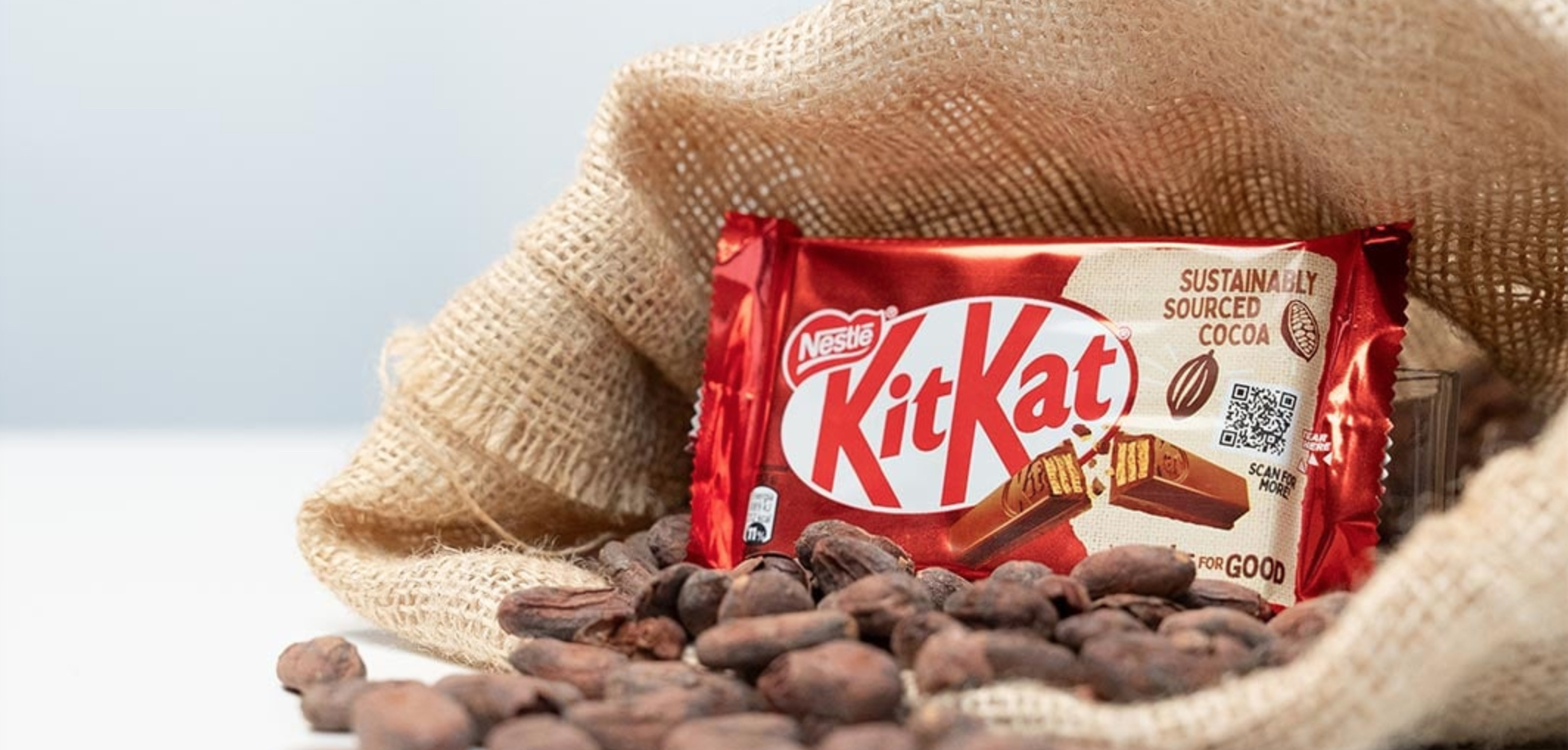Nestlé introduces KitKat made with cocoa from its Income Accelerator Programme
Nestlé has introduced the first KitKat made with cocoa mass from beans grown by farmer families engaged in the company’s income accelerator. This KitKat aims to connect consumers with the farmers in Nestlé’s programme and raise awareness about the sustainability of the cocoa used in the iconic bars.
The programme was launched in January 2022 to help close the living income gap of cocoafarming families and reduce child labour risk. It also aims to improve agriculture practices and promote gender equality, empowering women as agents for positive change. The programme incentivizes cocoa-farming families that enrol their children in school, implement good agricultural practices, engage in agroforestry activities, and diversify their incomes. The KitKat Breaks for Good will be available on store shelves starting from January 2024 in 27 European countries, and from May 2024, in the UK. In addition, a limited-edition KitKat, with 70% dark chocolate that is also made with cocoa sourced from the income accelerator, has been launched in the UK market as a pilot.
Nestlé’s income accelerator programme has so far supported more than 10,000 families in Côte d’Ivoire and is expanding to Ghana this year to include a total of 30,000 families. By 2030, the programme aims to reach an estimated 160,000 cocoafarming families in Nestlé’s global cocoa supply chain to create impact at scale.
Nestlé has collaborated with various partners and suppliers to transform its global cocoa sourcing and achieve full traceability and physical segregation of the cocoa sourced from its income accelerator programme. This means being able to track the entire journey of cocoa beans from origin to factory, while keeping them physically separated from other cocoa sources.
The cocoa mass from the income accelerator programme adheres to one of the highest traceability standards, ensuring ‘mixed identity preserved’ traceability, enabling cocoa to be traced and stored separately. In addition, by mid-2024, Nestlé plans to use segregated cocoa butter for all of its KitKat chocolate in Europe, with plans to expand to other regions in the coming years.




